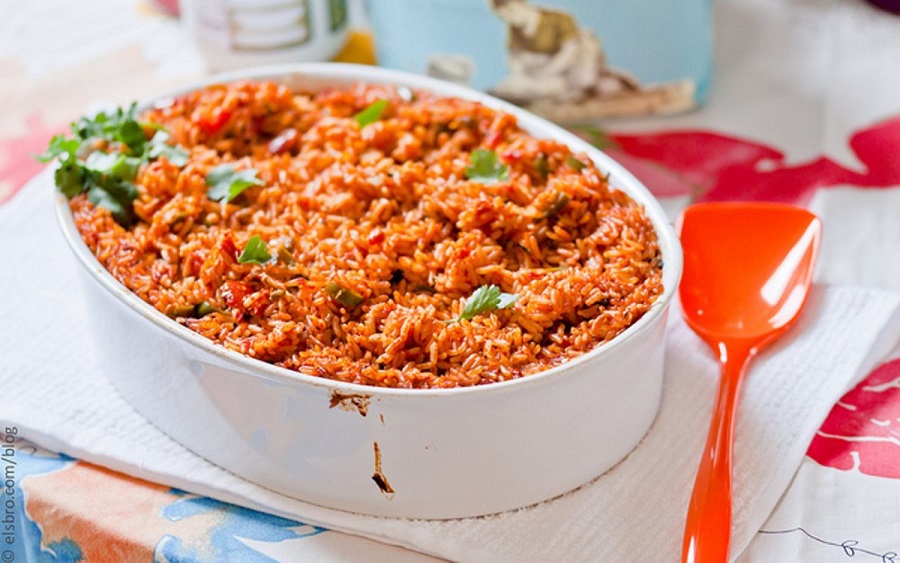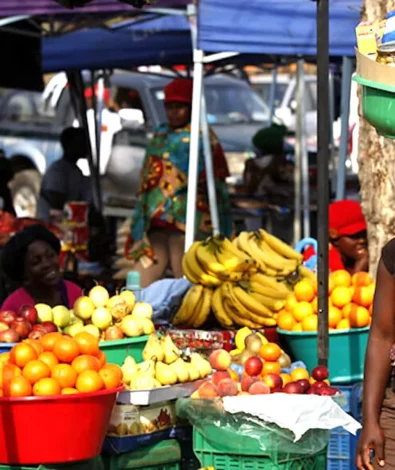Cost of making jollof rice nearly ticks N17000, increased the most in Onitsha – Report

The average cost of making jollof rice across major cities in Nigeria nearly hit the N17,000 mark as of March 2024.
The SBM Jollof Index for Q1 titled “Crisis at the Table” posits that the average cost of making jollof rice for a family of four increased by 29.3% to N16,955 from N13,106 recorded in October across major markets in Nigeria.
Increase in cost of jollof rice across geopolitical zones
According to the report, residents in Onitsha- South-east Nigeria saw a high increase in the cost of preparing jollof rice within the six months under review at 44.9%. It increased from N10,280 to N14,900.
On the other hand, residents of Nyanya market in Abuja saw the slowest growth in the cost of preparing jollof rice at just 15.5% to N17,500 within the period.
Kano state recorded the highest cost of making jollof rice at N19,300- an increase of 22.9% during the six-month period.
In the city of Calabar in the South South, the cost of cooking a pot of jollof rice for households increased to N17,050 in March 2024 from N13,250 recorded in October 2023. This represents an increase of 28.7% within the three periods under review.
Also in the South-South, the oil city of Port-Harcourt saw an increase of 23.2% in the cost of cooking jollof rice for households according to the report.
Across markets in Lagos and Ibadan representing the South-West, the cost of a pot of Jollof rice increased by 26.5% and 28% respectively during the period under review.
Reasons for the increase
The report attributed the increase in the cost of preparing Nigeria’s staple to a significant depreciation in the value of the naira pushing the cost of rice and its ingredients such as turkey, beef, vegetable oil, seasoning etc.
Also, elevated transportation costs and supply chain disruptions were noted as factors responsible for the increase in the cost.
More Insights
The increase in the cost of preparing jollof rice over the six months comes as no surprise. Between October and March, food inflation increased from 31.5% to 40.01% according to the National Bureau of Statistics.
Specifically, the price of rise increased almost beyond the affordability of many Nigerian households. In February, the cost of a bag of rice rose to a record high of N88,000 per bag in Markets in Lagos. However, a recent survey by nairametrics reveals a drop of 20% as of April.
The depreciation of the naira coupled with increased transportation costs with the price of diesel reaching almost N1,500 and the naira trading at N1600/$ on the official market around late February and early March.
However, the strengthening of the naira in the past few weeks has coincided with the reduction in the price of rice in the market giving more credence to the reasons provided by the report.



